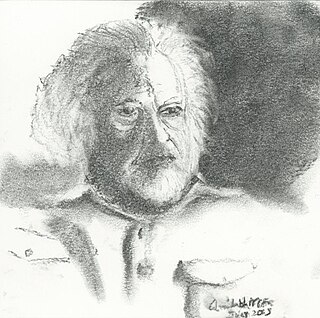Related Research Articles

Thomas Titus Nkobi was a senior leader of the South African African National Congress (ANC) and a key figure in the Anti-Apartheid movement. Until his death he was the Treasurer General of the ANC and also its Member of Parliament.
Taubie Kushlick (1910–1991) was a South African actress and producer. She became characterized as the self-styled "First Lady of Theatre".

Moosa Moolla was an Indian South African activist and diplomat. A member of the African National Congress, Moolla was arrested and eventually found not guilty in the 1956 Treason Trial. In 1961, he was arrested and tried for incitement at the time of the May 1961 stay-at-home protest. In May 1963, he was arrested under the 90-day law. On 11 August 1963, Moolla and others escaped prison by bribing a young guard. He later served as the ANC representative to Asia while living in exile in India. Following independence, he became the first South African ambassador to Iran.
Florence Grace Mkhize was an anti-apartheid activist and women's movement leader. Mkhize was usually called 'Mam Flo'. Mkhize was also involved in trade unions in South Africa, organizing for the South African Congress of Trade Unions (SACTU).
Hendrika Cornelia Scott (Henda) SwartFRSSAf was a South African mathematician, a professor emeritus of mathematics at the University of KwaZulu-Natal and a professor at the University of Cape Town
Elizabeth Sneddon (1907–2005) was a South African speech and drama teacher, theatrical director and academic.
Mary Malahlela-Xakana was the first black woman to register as a medical doctor in South Africa. She was also a founding member of the Young Women’s Christian Association.
Women's March was a march that took place on 9 August 1956 in Pretoria, South Africa. The marchers' aims were to protest the introduction of the Apartheid pass laws for black women in 1952 and the presentation of a petition to the then Prime Minister J.G. Strijdom.
Mary Moodley was a trade unionist and anti-apartheid activist in South Africa. Moodley regularly shared her home in the black district of Wattville Township with her family and homeless people, both black and white. She was generous with the little money she had and was a "regular churchgoer."
Barbara Mosima Joyce Masekela is a South African poet, educator, and activist who has held positions of arts leadership within the African National Congress (ANC).
The Beer Hall Boycott of South Africa was a women-led national campaign of boycotting municipal beerhalls. According to the Native Beer Act of 1908 it was illegal for women to brew traditional beer. Police raided homes and destroyed home brewed liquor so that men would use municipal beerhalls. In response, women attacked the beerhalls and destroyed equipment and buildings.

Anna Neethling-Pohl was a South African actress, performer and film producer. She was also an author who wrote under the pen name Niehausvor and sometimes Wynand du Preez. She was the first female broadcaster at the South African Broadcasting Corporation.
Alina Molebogeng Nancy Lekgetha, born Alina Molebogeng Nancy Ditheko was the Deputy Minister of Health of the Bantustan Bophuthatswana, co-founder of the Bophuthatswana Nursing Council and the main driver in the establishment of the Department of Nursing in the then University of Bophuthatswana.
Matebello Magdeline Resha, also known as Maggie Resha was a nurse as well as a member of the African National Congress and the African National Congress Women's League. She organized meetings for the adoption of the Freedom Charter in 1955.
Refiloe Jackie Phelile Florence Sedibe is a retired South African National Defence Force (SANDF) Major General. Sedibe was part of the African National Congress (ANC) prior to the end of apartheid and also a member of the uMkhonto we Sizwe (MK). She was one of the first women involved in MK and the first black woman to hold the rank of Major General in the SANDF.
Sankie Dolly Mthembi-Mahanyele, formerly known as Sankie Mthembi-Nkondo or Sankie Nkondo, is a South African politician, diplomat, and former anti-apartheid activist. She was the Minister of Housing from 1995 to 2003 and served as Deputy Secretary-General of the African National Congress (ANC) from 2002 to 2007.
Susan Kelisaletse Mnumzana is a South African politician who represented the African National Congress (ANC) in the National Assembly and Free State Provincial Legislature. She also served in the Free State Executive Council between 2005 and 2008 under Premier Beatrice Marshoff.
Thandi Lujabe-Rankoe is a South African career diplomat and former anti-apartheid activist. She worked for the African National Congress in exile during apartheid from 1961 to 1994. In the post-apartheid government, she served as South African ambassador in Tanzania, Botswana, and Mozambique between 1995 and 2009.
Florence Mophosho was a South African politician and anti-apartheid activist of the African National Congress (ANC). A stalwart of the ANC Women's League, she was a member of the ANC National Executive Committee from 1975 until her death in 1985.
References
- 1 2 3 Sechaba(PDF). Dar es Salaam: African National Congress. 3 (3). 1973 http://psimg.jstor.org/fsi/img/pdf/t0/10.5555/al.sff.document.0037.0509.007.003.mar1973_normal.pdf . Retrieved 22 July 2017– via Digital Imaging South Africa (DISA).
{{cite journal}}: Missing or empty|title=(help) - ↑ Women marching into the 21st century : wathint' abafazi, wathint' imbokodo. OCLC 45002090.
- 1 2 "60 Iconic Women — The people behind the 1956 Women's March to Pretoria (41-50)". The M&G Online. 25 August 2016. Retrieved 21 October 2017.
- ↑ "Women's resistance in the 1960s - Sharpeville and its aftermath". South African History Online. 8 August 2017. Retrieved 21 October 2017.
- ↑ South African Democracy Education Trust (2004). The Road to Democracy in South Africa: 1960-1970. Zebra. p. 470. ISBN 978-1-86872-906-7.
- ↑ Women Marching Into the 21st Century: Wathint' Abafazi, Wathint' Imbokodo. HSRC Press. 2000. pp. 36–37. ISBN 978-0-7969-1966-3.